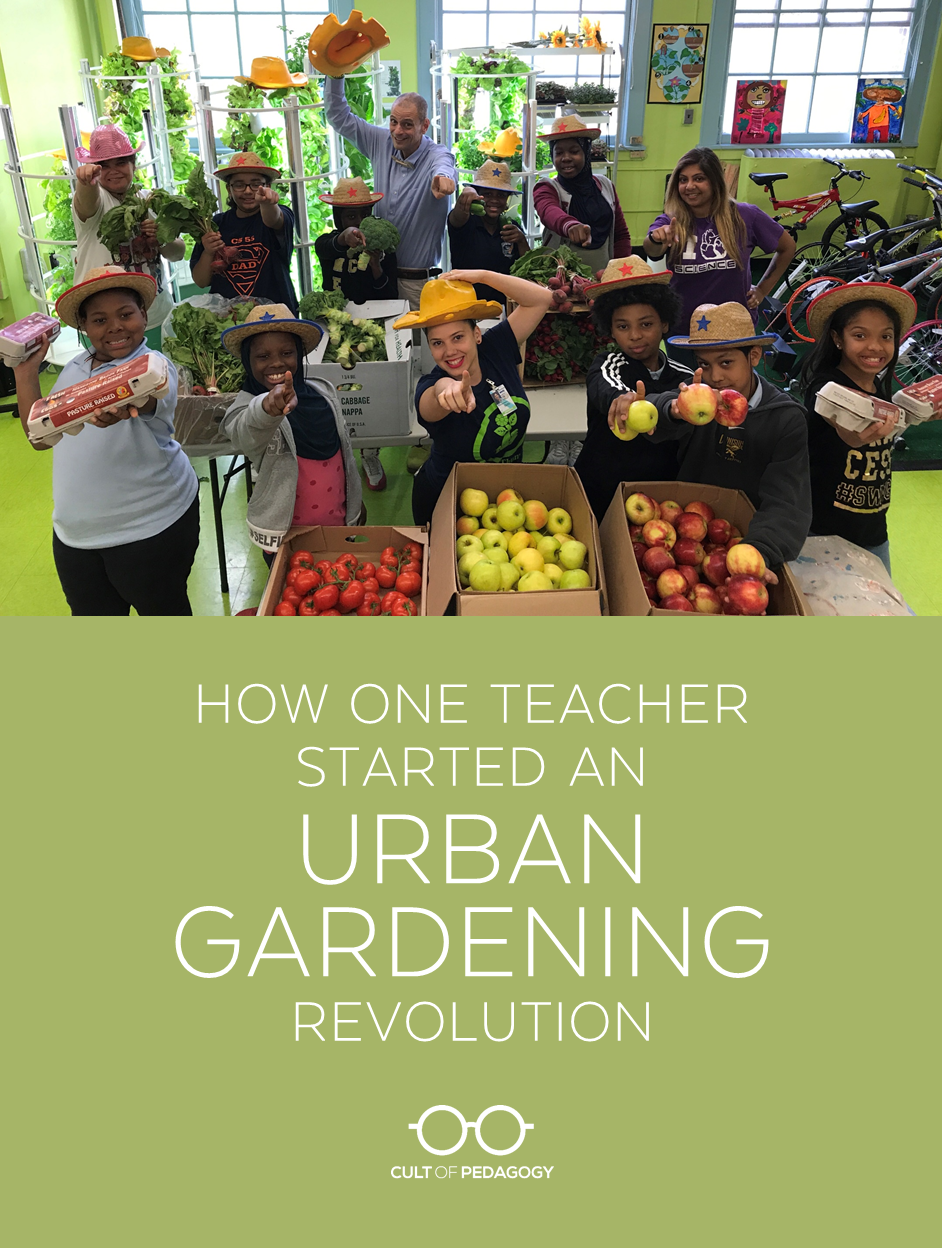
Listen to my interview with Stephen Ritz (transcript):
It’s such a simple word: garden. Gardens are nice. Maybe your mom has one. Maybe you have one. Perhaps you or someone you know is currently trying to give away bags of zucchini from a garden that’s producing more than one family cares to eat.
But put a garden in a school, and it becomes so much more. Every year, more schools are discovering the educational potential of gardens. This is astoundingly true in the case of Stephen Ritz, a South Bronx educator who has developed a school-based gardening program you have to see to believe. I can’t possibly describe it as well as he does, so here: Get yourself a cup of coffee, set aside fifteen minutes, and watch his TED Talk.
Hang on tight; it’s a fast ride.
Since the time this talk was given, Ritz, his team, and his students have built the Green Bronx Machine even further, offering culinary classes, a summer camp, and both indoor and outdoor gardens that teach students and help to feed the community.
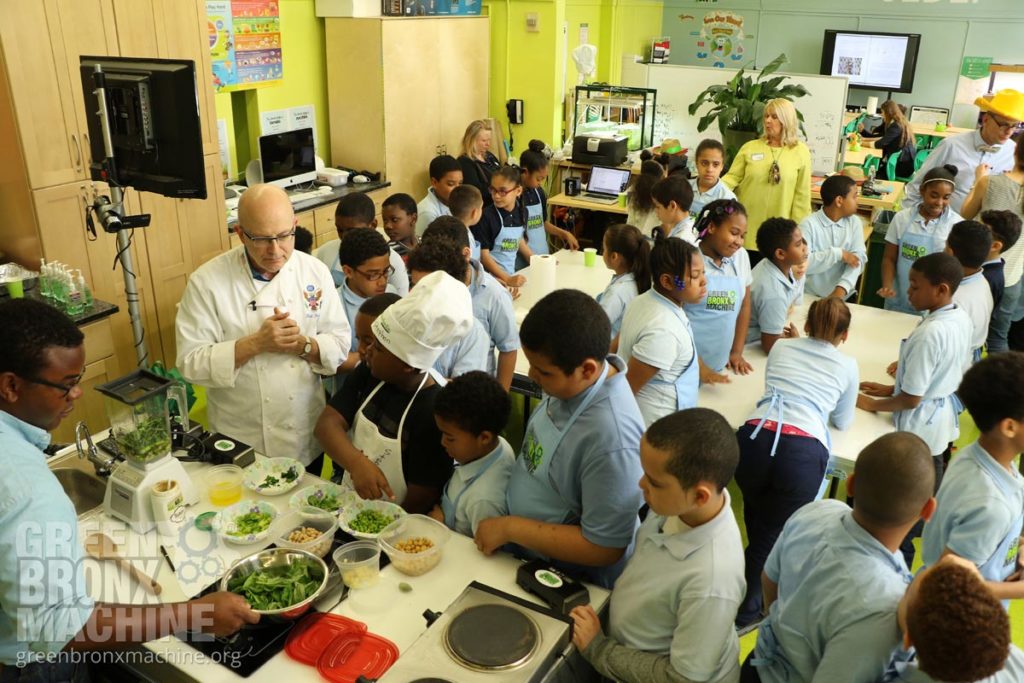
A cooking lesson from former White House pastry chef, Bill Yosses.
Keys to Success
It’s clear that Ritz has roughly the same energy as about ten ordinary mortals, and this seems to be a big factor in how he has been able to continually iterate and push forward with this program. But others can start similar projects in their own schools by sticking to these principles:
-
- Keep it local. “People should not have to leave their community to live, learn, and earn in a better one,” Ritz often says, and this idea is at the core of everything he does: Rather than ship students off to other neighborhoods where resources might be more plentiful, the work happens in the community, using as many community resources as possible. Sometimes that means partnerships with local businesses, other times it means inviting family members to share what they know. Use whatever you have available, but always consider local resources first.
- Maximize Curricular Connections. A school garden offers a staggering array of instructional possibilities. Apart from the more obvious science-based standards that can be addressed in any gardening project, planning a garden can involve math lessons, project management skills, and the study of business principles, if any of the produce is going to be sold. On top of that, students can also share their progress in writing, photography, and videography.
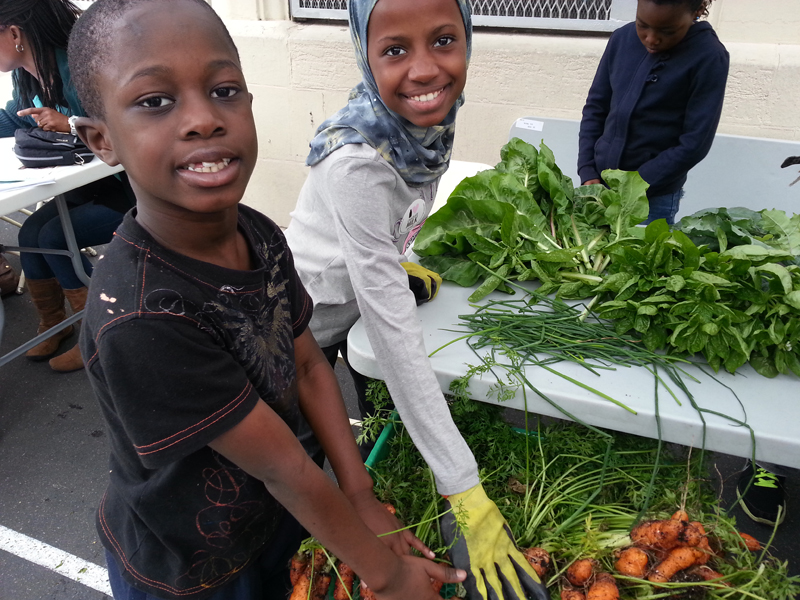
Students participate in every stage of the growing process, including the harvest.
- Include service. Harvests from the Green Bronx Machine’s gardens are sold at farmers markets and supply the school’s cafeteria with fresh fruits and vegetables, but they also go to local homeless shelters. When planning a school garden, consider how you might serve those in need.
- Just start. Although Ritz’s current program largely focuses on growing vegetables in beautiful classroom Tower Gardens, it didn’t start that way. Over a decade ago, Ritz and his students started out planting flower bulbs in a local park. That evolved into other ornamental gardens, then into growing vegetables outside. Only later did Ritz add the indoor garden, a model that allowed for bell-to-bell instruction with no need for time-consuming travel or good weather conditions. Yours doesn’t need to be so elaborate: The best way to start a garden project is to just start: Even a set of containers on a windowsill or a simple plot of dirt behind the school can yield incredible results.
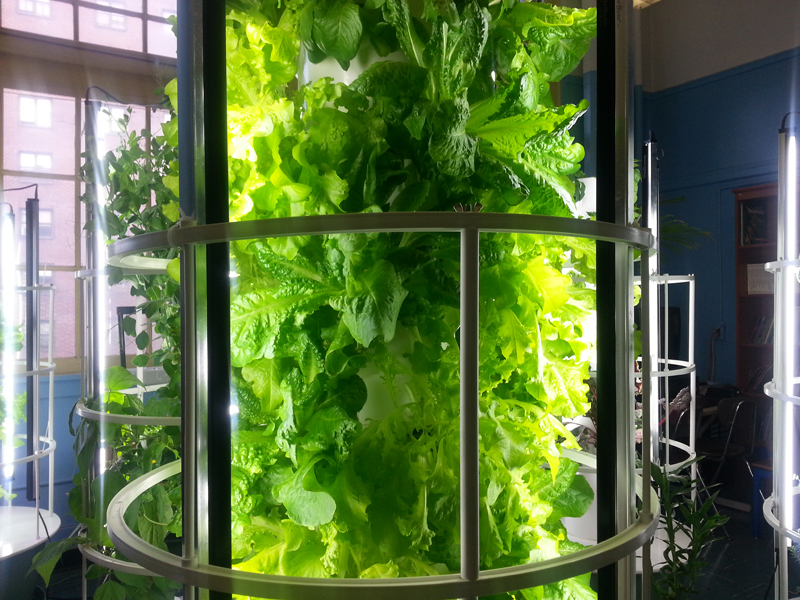
One of seven Tower Garden systems in the Indoor Teaching Farm
Learn More
- The Green Bronx Machine offers a standards-aligned curriculum that teachers can use to implement a gardening program in their own school.
- Ritz’s recently published book, The Power of a Plant, tells the story of his school-based gardening journey. It’s a fantastic read for anyone with a serious interest in starting their own school garden. (Links to this book are Amazon Affiliate links, which means I get a small commission on purchases you make through my links at no additional cost to you.)
Join our mailing list and get weekly tips, tools, and inspiration—in quick, bite-sized packages—all geared toward making your teaching more effective and fun. You’ll get access to our members-only library of free downloads, including 20 Ways to Cut Your Grading Time in Half the e-booklet that has helped thousands of teachers save time on grading. Come on in!!

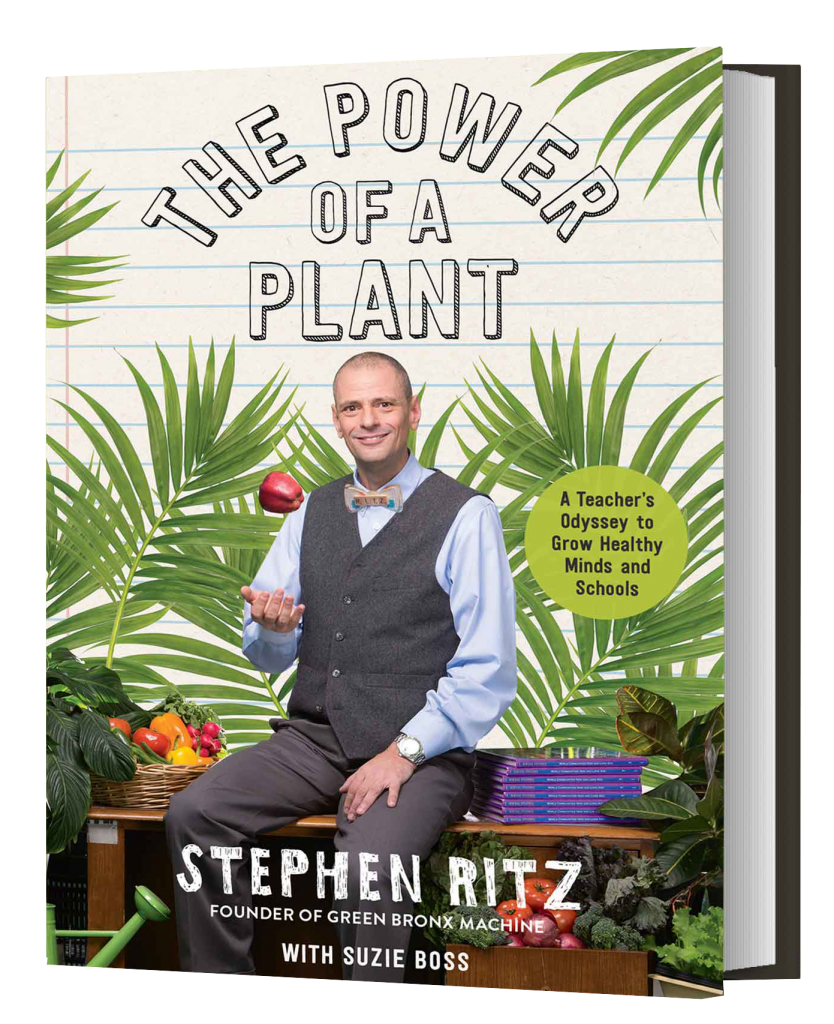
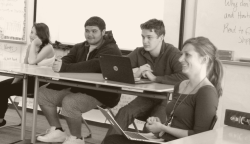


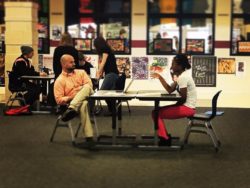
Mr. Ritz is so full of verve and passion! It is understandable how his students and, subsequently, community were able to get behind the initiative from the beginning. I love that his TEDTalk showcased his students and community; their story is truly inspiring!
Hi just Love it we have started a small herb garden and plant garden at our school and have hopes of another garden of fruit trees soon. The students love it and have the most amazing fun when outdoors in the garden.
I love this! What an incredible story! Sí se puede!
What an amazing program. The number of skills kids can learn from urban gardening – health, sustainability, compassion and care, teamwork – is astounding. I hope this program spreads far and wide!
Awesome 😊 sooo wonderful!
Hi Jenn,
Environmental and Sustainable education has been a passion of mine since I started 5 years ago. I’ve always had a passion for gardening and growing up in poverty, the garden was one of our only sources of fresh food.
We have a large agriculture program at my school where students learn about plant biology, soil, and business through the sale of plants in the Spring. We also regularly partner with the local community garden and maintain a bed of veggies that are available for those in need in our community. Students develop a host of skills including communication, critical & creative thinking, empathy, and social responsibility.
Living rurally I can definitely agree that making local connections has helped us get where we are today. The businesses and residents of our area are always willing to volunteer their time or financially support programs, especially those addressing food insecurity.
Thanks for bringing attention to such a worthy cause!
Thanks for sharing this, Tai! It sounds like the agriculture program at your school is doing a lot to make an impact on both the students and the community!